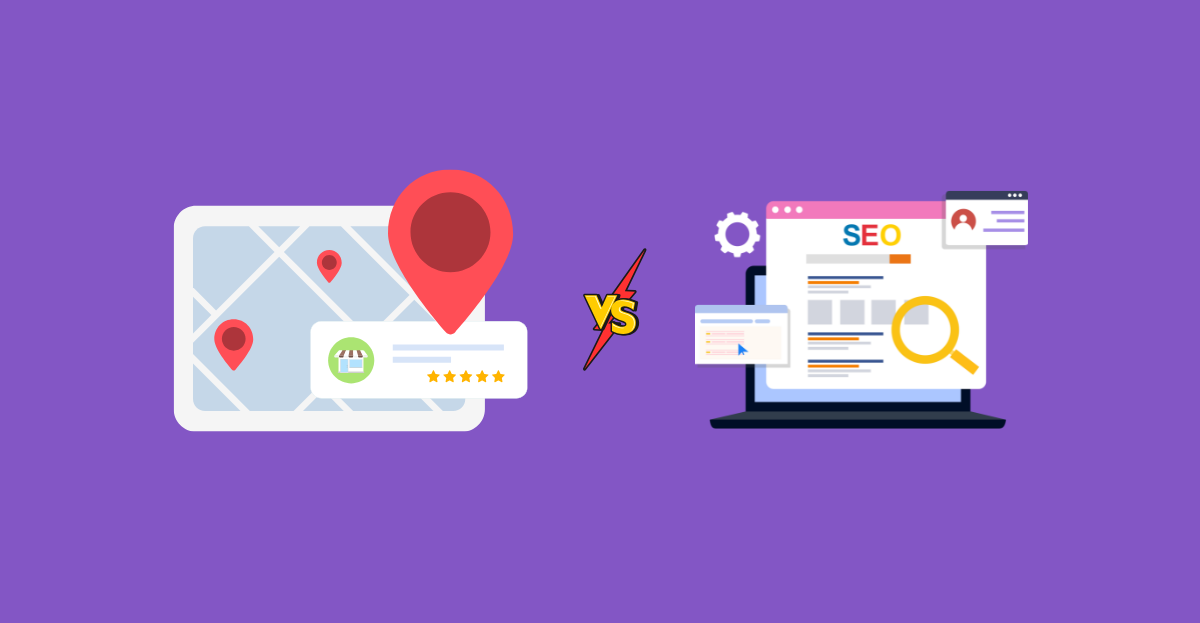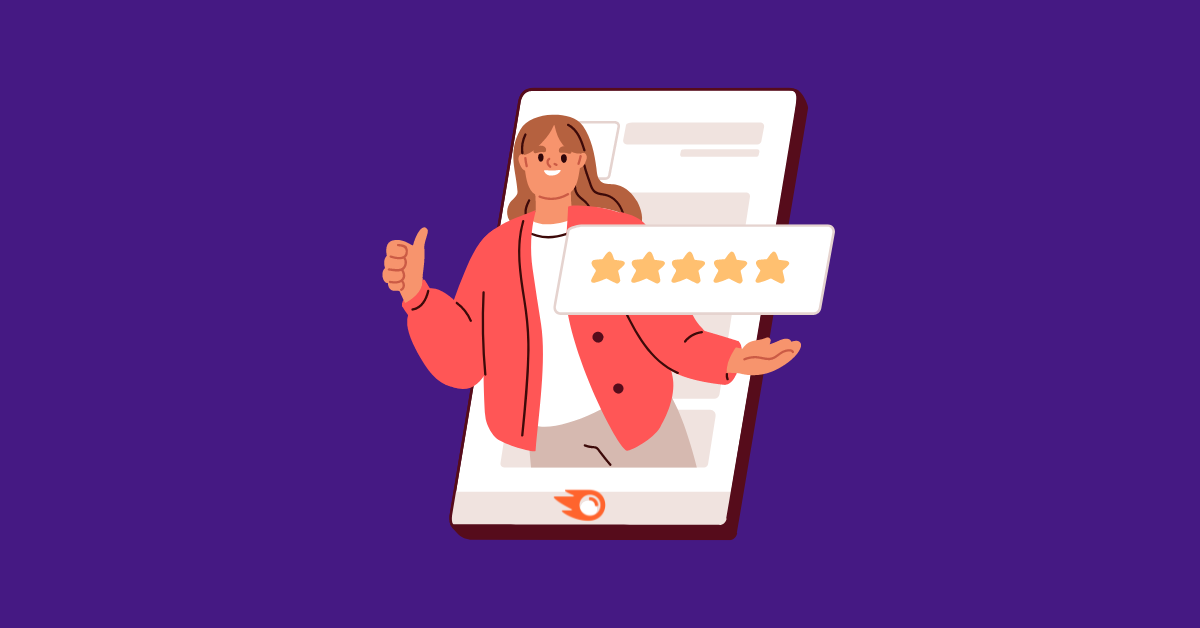I think you will spend 452 seconds reading this post
In this blog, we will look into the what is the difference between Local and Organic SEO so that even a beginner can understand how they work and why they matter.
When it comes to finding your website online, you might have heard terms like “Local SEO” and “Organic SEO,” right?
YES!
So, both are powerful ways to help your website appear in Google search results, but they are used for different purposes and use different strategies.
Dig Deeper!
What Is SEO?
SEO(Search Engine Optimization) is a process that helps your website to rank higher on search engine results pages (SERPs).
When people use Google or other search engines to look for products, services, or answers, SEO helps make sure your website is easy to find.
There are different kinds of SEO, but the two most commonly discussed are Local SEO and Organic SEO.
Each one helps websites appear in search results but it will reach specific audiences in specific ways.
What Is Local SEO?
Local SEO is about helping your business appear in search results for people who are physically nearby, which means your local area.
Local SEO is the way to go if you have a bookstore or serve customers in a specific geographic area.
The goal is to get your business in front of local customers who are looking for your type of products or services.
For Local SEO, you want to maintain and well optimized three things: they are
- Location-specific searches (e.g., ‘Workshop near me’ or ‘best Burger in Bengaluru)
- Google Maps results and local business listings (register your business on Google Maps and optimize well, which will help your customer to find the right location easily)
- Google Business Profile optimization
How Does Local SEO Work?
Local SEO works on location-based keywords and online directories. Here are the main ways Local SEO helps your businesses rank in your local area.
Setup Google Business Profile:

Your Google business profile on Google is crucial for local SEO and your business.
Creating and maintaining a Google Business Profile ensures that your company appears on Google and Google Maps when users search for businesses like yours in their area.
For example, if a user searches for a ‘flower shop in Bengaluru’, if your profile is well optimized for local search, then it will pop up at the top for the user.
According to BrightLocal, 76% of people who search for something nearby visit a shop or business within a day.
So, if you’re focusing on customers nearby, then local SEO is essential.
NAP:
NAP means the Name, Address, and Phone Number of your business.
Local SEO focuses on ensuring that your NAP information is accurate across all platforms, including your website, local directories, and social media.
This will build trust with both users and search engines.
Customer Reviews:
Customer reviews play an important role in Local SEO.
Google favors businesses with positive reviews and pops up at the top of the search results.
According to Moz, reviews improve 16% of Google’s ranking of local businesses.
This will improve your trust, credibility, and overall business expertise.
Insert Local Keywords:
Local SEO involves using location-specific keywords.
For example, use keywords like ‘near me’ or ‘best marketing agency in Bengaluru’ to help your business rank higher when people search for services in your area.
To find these keywords, use keyword research tools like Semrush or Ahrefs.
Here is the detailed Semrush review about its features, pricing and much more to know better about this tool, and a beginner-friendly guide about keyword research.
Who Should Use Local SEO?
Let’s see, for whom is local SEO is perfect for:
- Businesses with a physical location (e.g., restaurants, stores, service providers)
- Professionals like doctors, lawyers, or real estate agents serving specific geographic areas
- Businesses that want to attract customers from a particular city or region.
I hope now you have a clear idea about local SEO.
Now, let’s look at organic SEO in detail.
What Is Organic SEO?
Organic SEO helps your website rank for keywords and phrases related to your products, services, or content. It focuses on a wide range of audiences all over the world to bring more traffic to the website.
- Include keywords (e.g., ‘best AI tools for lead generation‘ or ‘how to generate AI content’)
- Do Content optimization to rank in the SERPs with quality and fresh content.
- Building high-quality backlinks from other reputable websites improves domain authority and ranking.
How Does Organic SEO Work?
The organic SEO process focuses on making your website valuable to a wide audience. Here is how Organic SEO works.
Keyword Research & Optimization:
Keyword research is the process of finding the words or phrases that people use to search for answers to their questions or any products or services in search engines.
For example, if you’re running a blogging website and you want to rank for a particular keyword like ‘What is on-page SEO’ or ‘What is good SEO score.’
So, write an in-depth blog about this keyword and optimize your content for the targeted keyword.
Quality Content:
When it comes to organic SEO, content marketing is king, and it is an essential part of boosting organic SEO.
Organic SEO is a part of writing blogs, creating videos, and writing how-to guides.
According to HubSpot, around 70% of marketers invest in content marketing to attract more organic traffic through SEO and other platforms.
So, investing in content marketing is worth it!
On-Page SEO:
On-page SEO is another important factor in organic SEO. Optimizing each page on your website improves SEO practices and boosts ranking.
On-page SEO includes keywords, meta titles and descriptions, HTML tags, internal and external linking, and structured content.
37% of marketers said optimizing content with relevant keywords is one of the top strategies.
Backlinks:
Backlinks are the best strategy to improve your organic traffic.
The best part of organic SEO is getting other high-quality website links to your content, which helps you rank better in SERPs.
According to ahrefs’s study, 96.55% of the websites didn’t get organic traffic because of a lack of backlinks on their website.
So, backlinks are essential in the organic SEO part and strategies accordingly.
User Experience (UX):
A friendly and fast-loaded website is very important.
Your website should be easy to navigate and provide value. This will boost its ranking factor, and Google likes the best websites that meet these criteria.
This is how organic SEO works.
What is the Difference Between Local and Organic SEO
Let’s quickly look into the difference between local and organic SEO to help you understand.
| Topic | Local SEO | Organic SEO |
|---|---|---|
| Focused location | Focus on a local area or specific location. Local SEO is best for a physical business. | Organic SEO focuses on a wide range of audiences all over the world. |
| Ranking Factors | Customer reviews, Google Business Profile, NAP consistency, local citations, and more. | Relevant keywords, quality content, backlinks, HTML tags, On-Page optimization and more |
| Search Result Visibility | It appears Google Local and in the map section | It will show regular SERPs |
| Keywords | Use local or specific keywords like “Marketing Agency in Bengaluru” or “Petrol bunk near me.” | Use General keywords like “What is Off-Page SEO” or “Best SEO tools.” |
When to Use Local vs. Organic SEO
Which SEO do you want to choose, organic or local SEO?
It depends on your business needs and goals. Let me clear it up!
Let’s imagine you’re running a local(Physical) business.
For example, you own a saloon shop and want to attract customers near you or your location.
You should optimize your Google business profile and target local keywords, which will improve your local SEO ranking.
Now, come to Organic SEO.
For example, if you want to attract outside of your location and a broad audience, it will help you rank the topics that your targeted audience is interested in.
This will increase organic traffic to your website and attract more audiences worldwide.
Statistics
Let’s look at some statistics that show how essential SEO is for your SEO.
- According to the SEO Tribunal, 97% of the people knew about the local company information online.
- 46% of the Google searches are filled with local searches.
- Based on BrightEdge report, 53% of searches are organic traffic.
- Research conducted by BrightLocal shows that 76% of the customers visit the local shop or business within 24 hours after conducting a local search.
Now you understand how important it is for businesses to have an online presence, especially one well-optimized for search engines.
Conclusion: Final thought
In this blog, I have guided you about local and organic search, and I hope you got an idea about each SEO
Understanding the difference between Local and Organic SEO is important for deciding which SEO strategy is right for your business.
Local SEO is about helping customers find you nearby, while Organic SEO focuses on helping you reach a wider audience through valuable content.
If you have any doubts regarding this guide, drop them in the comment section.
We’re happy to help and clear your doubts.






